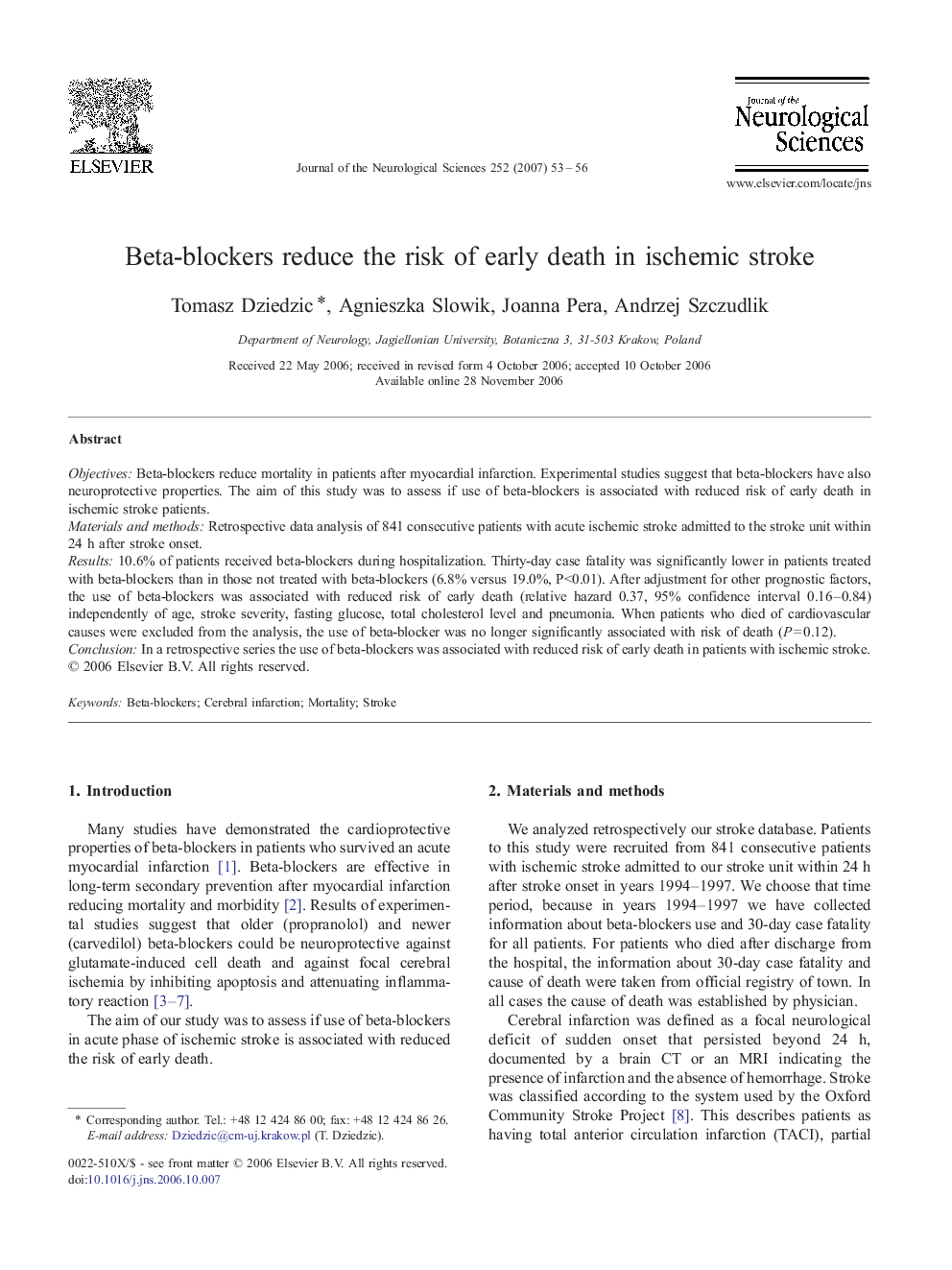| Article ID | Journal | Published Year | Pages | File Type |
|---|---|---|---|---|
| 1916536 | Journal of the Neurological Sciences | 2007 | 4 Pages |
ObjectivesBeta-blockers reduce mortality in patients after myocardial infarction. Experimental studies suggest that beta-blockers have also neuroprotective properties. The aim of this study was to assess if use of beta-blockers is associated with reduced risk of early death in ischemic stroke patients.Materials and methodsRetrospective data analysis of 841 consecutive patients with acute ischemic stroke admitted to the stroke unit within 24 h after stroke onset.Results10.6% of patients received beta-blockers during hospitalization. Thirty-day case fatality was significantly lower in patients treated with beta-blockers than in those not treated with beta-blockers (6.8% versus 19.0%, P<0.01). After adjustment for other prognostic factors, the use of beta-blockers was associated with reduced risk of early death (relative hazard 0.37, 95% confidence interval 0.16–0.84) independently of age, stroke severity, fasting glucose, total cholesterol level and pneumonia. When patients who died of cardiovascular causes were excluded from the analysis, the use of beta-blocker was no longer significantly associated with risk of death (P = 0.12).ConclusionIn a retrospective series the use of beta-blockers was associated with reduced risk of early death in patients with ischemic stroke.
